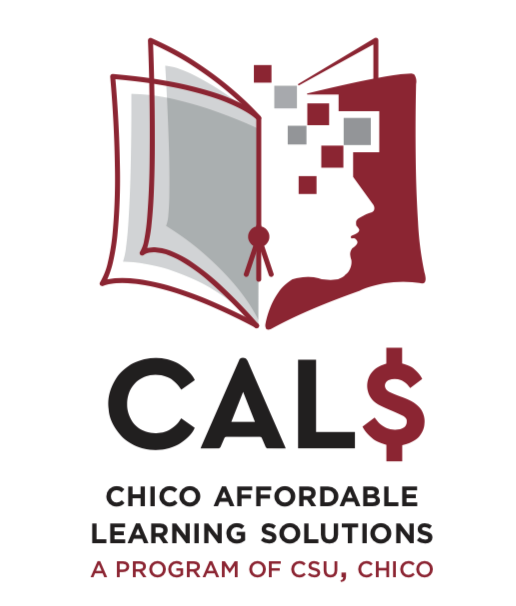Meriam Library(opens in new window)
Faculty Affairs and Success (FAAF)(opens in new window)
Accessible Technology Services (TEIN)(opens in new window)
Interested in learning a new language to enhance your cultural competency, prepare for an overseas trip, or communicate with your International students? Well, there’s an app for that. Chico State recently partnered with Mango Languages(opens in new window) to provide faculty and students with a free (normally $18/month) full-access account. Mango (similar to Duolingo or Babbel) is a database with over 70 languages including Spanish, Thai, Punjabi, Latin, Korean, Greek, and many more. Mango can prepare learners for realistic conversations and strengthen everyday communication skills. You can read and hear words, speak words and play them back to yourself, and play comprehension games. There is even a built-in translator.
To access Mango, click on this Meriam Library link(opens in new window) and then click on Mango Languages. Then, you can create a free account by clicking Sign Up. Enter your campus email address and a password (doesn’t have to be your campus password), click the free account, click on Chico State, and you’re all set.
There is also a Mango Languages mobile app available on Apple and Google Play stores.
Comment on this Tuesday Tip!(opens in new window)
Chico State students pay several hundred dollars for textbooks and supplies every semester, in each of their courses, on top of tuition and fees. There is a growing interest among faculty to adopt lower cost (or even free) learning solutions to help remove financial barriers for students who sometimes forego purchasing course materials in order to meet their basic needs. The Chico Affordable Learning Solutions (CAL$) website(opens in new window) has several suggestions to decrease costs of course materials while retaining quality and rigor. Reducing course costs can help narrow equity gaps while improving graduations rates for all students.
If you’re interested in locating (or even creating your own) high-quality low-cost course materials, Apply to the CAL$ Fall Workshop Series(opens in new window) by October 15. Faculty who attend three different one-hour workshops (see attached details) and implement a cost-savings strategy for students in their Spring 2020 course(s) will earn both a CAL$ Training Certificate and $400 (paid in Spring 2020). Applications from faculty who teach high-enrollment, high cost, and/or GE courses are especially encouraged. Workshop titles and payment details can be found on the CAL$ FA19 Memorandum of Understanding(opens in new window). If you have questions, please contact Beth Shook(opens in new window) or Edward Roualdes(opens in new window).

Comment on this Tuesday Tip!(opens in new window)
The Internet is full of great (and sometimes not-so-great) teaching ideas, lesson plans, and videos. This series of teaching videos(opens in new window) on YouTube is useful, brief, and interesting. Each video clip is approximately 5-minutes long and topics include “How to Aggregate Quiz Scores,” “The Reciprocal Learning Strategy,” and “The In-class Flip.” Watch one clip a day and see if you can find a creative way to enhance learning in your class and have fun along the way.
Comment on this Tuesday Tip!(opens in new window)
Learning students’ preferred pronoun (or perhaps more accurately their “correct” pronoun), such as she/he or him/her, can be just as important as learning their name. It is part of their identity and you can now see it on your class roster. This prevents you from having to request pronouns publicly while taking attendance, which can be embarrassing, stressful, or confusing to some students. Knowing pronouns even before a semester begins can help you learn a little more about your students thereby creating a safer and more inclusive atmosphere.
Here’s how it works: Students list their pronoun in their Student Center. This allows faculty to see it on their class rosters (see screenshot below). Only students can select their pronouns, and they can change it any time they want in their Student Center.
If you have questions about this new feature, contact the Office of Diversity & Inclusion(opens in new window) or the Office of the Registrar(opens in new window).
Comment on this Tuesday Tip!(opens in new window)
The Office of Faculty Development and its Advisory Board have prepared an exciting suite of Faculty Learning Communities (FLC) for you for the Spring semester. All FLCs for Spring 2020 are open to all faculty of any rank in any discipline including lecturers and you may apply to more than one FLC. See below for details and application links. Applications must be completed by November 12, 2019. Each FLC involves seven 2-hour group sessions and faculty will be paid $500 for participating and completing deliverables. Find more information on the FDEV FLC Page!
“Successful Grant-Writing”
Brief Description: In collaboration with Chico State Enterprises (CSE), faculty will be guided through the grant-writing process, including project concept development, positioning yourself, narrative writing, and submission of a proposal. Participants will gain knowledge and strategies to successfully compete for grant funded research, scholarship and creative activity, allowing you to make valuable contributions to your field and advance your career.
Application Form(opens in new window)
“10,000 First-Generation Wildcats: Embracing a culture of support for the 62% of Chico State students whose parents did not complete a 4-year degree”
Brief Description: Faculty will gain a variety of tools to teach and support our 10,000 First-Generation College Students. A variety of inclusive pedagogical principles will be discussed as faculty learn about the assets, challenges, and backgrounds of this growing population at Chico State.
Application Form(opens in new window)
“Improving Your Teaching Practice: Tips, Strategies, and Resources”
Brief Description: This FLC is for faculty who want to enhance their teaching practices and create collaborative relationships around pedagogy across disciplines. Topics will be determined based on needs and interests of participants and may include areas such as designing an inclusive syllabus, enhancing lectures, facilitating discussions, teaching large classes, aligning assessments with learning objectives, and educational technologies.